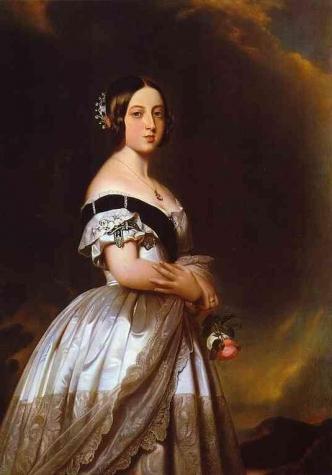She was born in 1819. At the age of eighteen, in 1837, she became queen. The years of her reign (1837-1901) were called the Victorian era - the time of stability, decency and prosperity. It was an unprecedentedly long reign in British history. Queen of England Victoria was the mistress of the vast British Empire. England itself in the 19th century turned into a forge of the world: industrial production was gaining unprecedented strength, trade flourished and cities grew.

At birth, she was given the beautiful name of Alexandrina-Victoria. The first name in honor of the godfather, Russian Emperor Alexander I. The childhood of the pretender to the throne was rather monastic than royal. The basis of her upbringing was all kinds of restrictions and strict instructions of the governess and mother (the father, the duke of Kent, died 8 months after the birth of his daughter). Victoria learned of her brilliant future, that she was the future Queen of England, at age 12. “I will be good!” The princess exclaimed then, and the whole long term of her reign did not break her promise.
“Iron” education influenced the formation of such important character traits for the ruler as firmness in making decisions, the ability to choose from the many tips the most useful, and from the people around her the most faithful. The Queen of England was an imperious person, demonstrating independence, strength of character, fortitude, and at the same time always remained a woman. And then, when she fell in love with Prince Albert without memory , she became his wife, and later the mother of nine children. And then, when after 20 years of a happy life with her beloved husband, she mourned for many years and mourned his death.

It was from the reign of Victoria that royal power ceased to intervene in the political life of Great Britain. The monarchy lost the features of a political institution, becoming a symbol, an institution more likely moral than political. Victoria is the first queen of England whose role in governing the country was purely symbolic. Under her, the state of the monarchy that George Orwell remarkably described was formed: "... Gentlemen have real power in bowlers, and another person sits in a gilded carriage, symbolizing greatness ...".

For the extensive family ties and influence that Victoria, the Queen of England, had on European politics, she was affectionately nicknamed the "grandmother of Europe." Not a single monarch in England was as popular as Victoria. Her reign strengthened the moral authority of the crown. Queen Victoria has more monuments than any other British monarch, and her name is immortalized in the names of the Australian state, the famous waterfall on the Zambezi River, the largest lake on the African continent, a city in Canada.
When the Queen of England died in 1901, people took the sad event as evidence of the end of the 19th century. With the death of Victoria, Queen of the United Kingdom of Great Britain and Ireland, defender of the faith, Empress of India (this kind had the title at the end of the Queen’s reign), the era called by her name ended - the Victorian.